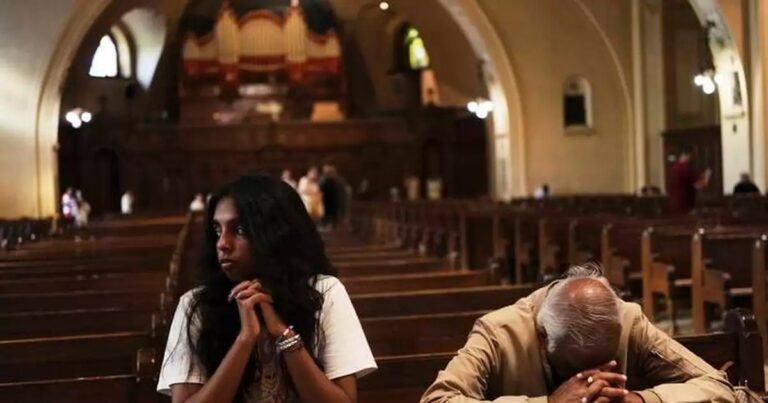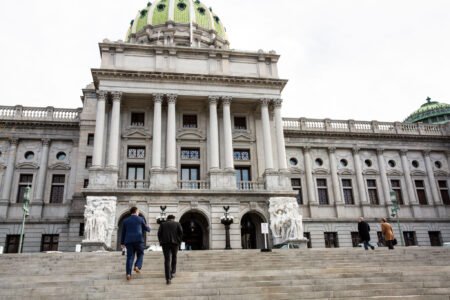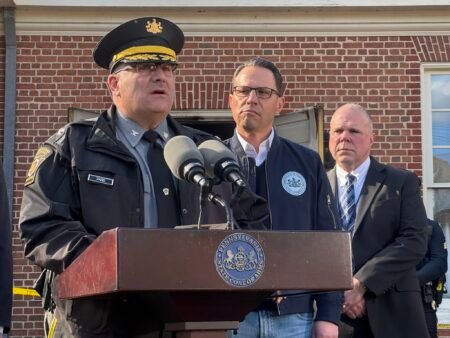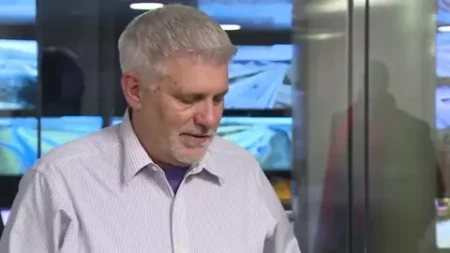Canada and the United States share a long border and many cultural ties. Yet, when it comes to religion in public life and politics, they differ sharply. This divide is clear in how leaders talk and act about faith and how much influence religion holds in each country’s politics.
U.S. President Donald Trump has made religion a central part of his message. Since his first speech as president, he has said he was “saved by God” to lead America to greatness. Trump often poses with the Bible and invites religious leaders to pray with him in the White House. His close allies openly connect their political views with Christian teachings.
In contrast, Canadian leaders tend to keep religion out of public speeches and politics. Prime Minister Mark Carney, for example, rarely mentions faith. His victory speech in April did not include any religious words. Canada’s political culture prefers to keep religion private, avoiding the mix of faith and governance that is common in the U.S.
Church attendance rates show similar differences. Canadians go to church less regularly than Americans. Evangelical Christians, who hold strong political power in the U.S., have little influence in Canada. Canadian politics do not push campaigns like putting the Ten Commandments in schools or banning abortion based on religious views.
Experts point to history and culture to explain why religion plays a smaller role in Canadian politics. Kevin Kee, a professor from the University of Ottawa, notes that Canadian leaders usually keep their religion quiet to avoid dividing people. Publicly mixing religion and politics can create conflicts in Canada’s diverse society.
Quebec, a mainly French-speaking province, offers a clear example of Canada’s secular trend. The Catholic Church once controlled many parts of Quebec’s public life, including schools and healthcare. But during the 1960s Quiet Revolution, Quebec reduced church power. Today, church attendance in Quebec is among the lowest in Canada.
Some religious Canadians feel marginalized in this secular environment. Mégane Arès-Dubé, a young churchgoer near Montreal, says Christians have little political representation in Canada compared to the U.S. She hopes Canada will “wake up” to its Christian roots.
The senior pastor at her church, Pascal Denault, has mixed views. He agrees that reducing the Catholic Church’s control was positive for freedom. Yet, he wishes religion could have a more positive role in public life. Denault warns that secularism sometimes acts like a religion itself, trying to silence religious voices.
Denault also doubts that many Canadians would accept a leader like Trump, who openly uses Christian symbols and language in politics. He says most Canadians prefer leaders who do not identify with a single religion.
In Montreal, many old churches have closed or been repurposed. Saint-Mathias-Apotre Church, once a hub for workers, is now a community restaurant serving meals to hundreds daily. The restaurant’s manager, Marc-Andre Simard, grew up Catholic but now considers himself religiously unaffiliated. He sees Quebec’s history as a cautionary tale for the U.S. regarding church control over society.
Elsewhere, former Catholic buildings now host secular groups. Michel Virard, co-founder of the Quebec Humanist Association, says Canadians want to keep clergy out of politics and public funds. They do not oppose religion but reject religious control over the state.
The difference between Canada and the U.S. goes back to their founding histories. When the U.S. became independent, it chose no official national church, leading to many faith groups competing in politics. This created a lively religious landscape, especially for evangelical Christians.
Canada had established churches tied to its provinces, like the Catholic Church in Quebec and the Anglican Church in other parts. This connection kept religion more separated from political life. Over time, Canada secularized quickly, leading to a steep decline in religion’s political power.
Carmen Celestini, a religious studies professor in Ontario, notes that Canadian politicians often engage with many faiths, not just Christianity. Visits to Sikh, Hindu, Jewish, and Christian places of worship show Canada’s multicultural approach.
Trump’s harsh words about Canada possibly becoming the 51st U.S. state united most Canadians. It strengthened national pride and lessened the voice of Christian nationalist groups. Celestini says Canadians value their diversity and sovereignty and want to avoid America’s religious-political divides.
This clear contrast in how religion and politics mix in Canada and the U.S. shapes each country’s identity and political climate. While the U.S. openly embraces faith in its leadership, Canada continues to prefer a more secular public space where religion remains a private matter.







